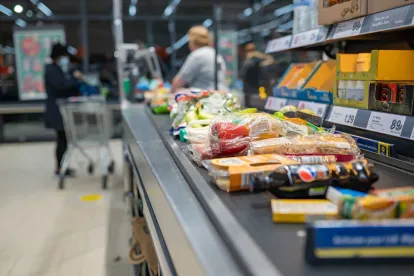Today, the United States is home to the largest immigrant population in the world. While much immigration-related debate centers on social issues, immigration’s economic effects are clear-cut it increases potential economic output by increasing the size of the labor force.
While inflation fears grip the U.S., the war in Ukraine has caused skyrocketing costs for farmers here. The price of agricultural chemicals such as fertilizers and pesticides has risen 50% over the past year, as Russia is a significant exporter of nitrogen, potassium, and phosphorous fertilizers. As a result, certain consumer goods are getting scarce, and meat and poultry are in short supply in many supermarkets. In addition, a combination of expensive crops to feed livestock and chickens, high transportation costs, and shortages of packaging materials may cause dairy shortages.
In the last two years “over half the farmers responding to a recent Purdue University survey say they’ve faced labor shortages. Many say they’ve also had difficulty maintaining adequate qualified workforces.”
Echoing the survey, Tyson Foods CEO Donnie King told quarterly earnings to call in February that “Customer demand continues to outpace our ability to supply products.” And labor shortages, as well as material shortages, may impact grocery shelves, with fewer transportation workers and grocery workers available to keep them stocked.
While the correlation between the rising prices and immigration may not be apparent, less immigrant labor in the U.S contributes to price hikes. The health of America’s farms and of the entire agriculture industry is tied directly to immigration. As recently as 2019, 48.9 percent of all agricultural workers were foreign-born, and more than one-fourth were undocumented. In many states where agriculture is essential, immigrants make up even larger percentages of the farm workforce; in California, immigrants comprise more than 80 percent.
The COVID-19 pandemic crippled the U.S. labor market, making it harder for all employers, farmers included. “We’ve seen how disruptions to the supply chain and a shortage of reliable workers have catastrophic impacts on businesses and entire industries. We’ve gotten a glimpse of what food shortages look like,” said Joel Anderson, executive director of the Snake River Farmers Association in Idaho. “We have seen bare shelves in our grocery stores.”
Immigration reform would be a viable solution for this ongoing issue. The Farm Workforce Modernization Act, a bill passed by the House of Representatives in 2021, would provide a compromise solution by permitting farmworkers and their spouses and children to earn legal status through continued employment in the agricultural sector by making changes to the H-2A program. The program allows U.S. employers or U.S. agents who meet specific regulatory requirements to bring foreign nationals to the United States to fill temporary agricultural jobs. However, its timetable doesn’t allow recipients to work year-round — a problem for operations that need workers at all times of the year, like dairy farms. The proposed bill aims to fix this issue by creating a year-round option, more wage consistency, mandated housing for migrant workers, and a streamlined application process for employers.
More workers would lead to more farm efficiency, decreasing the price of goods. During a time when the war in Ukraine is creating massive shortages and the U.S. is under increased pressure to keep up with the food demand, the already stressed agricultural labor market could greatly benefit from immigration reform.



 />i
/>i

